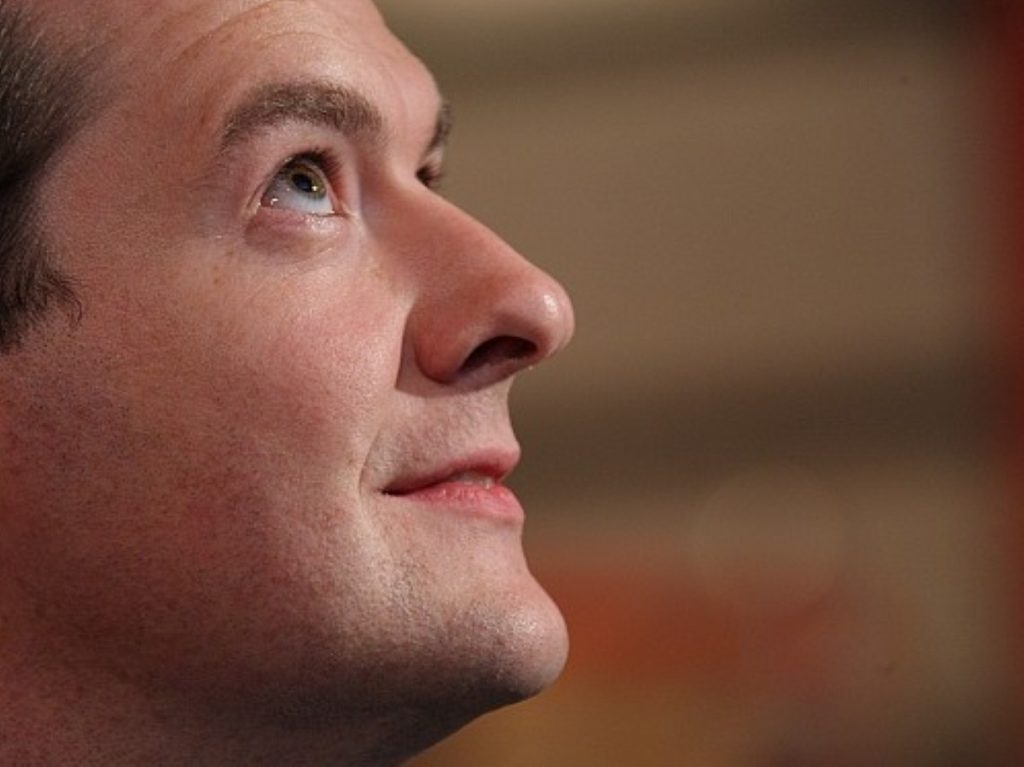The Week in Review: George Osborne’s Pyrrhic Victory
George Osborne would have good reason to feel bitter as he munched into his cereal this morning.
Not only had his autumn statement – delivered, as some form of Downing Street joke, in the heart of winter – been overshadowed by storms. Now he was being drowned out by a global media event: the death of Nelson Mandela. Whatever his skills, and supports say they are not minimal, the chancellor could not withstand comparison with the most celebrated statesmen of the modern age.
His victory speech was irrelevant by the end of the news cycle
Things could have been so different, if it wasn't for the Chinese. The autumn statement was only taking place on Thursday because of David Cameron's trip to China, where he was begging forgiveness for his decision to meet the Dalai Lama.
It was an unedifying spectacle. The prime minister had been frozen out by Beijing after the meeting and he was desperate to make amends. Unfortunately, the Chinese leadership was largely uninterested in what others thought of it. One Bloomberg journalist was barred from the press conference – more of a press talking-to, given they weren't allowed to ask questions – and Cameron's insistence that he had been discussing human rights behind closed doors seemed hard to believe given his apologetic and subservient manner.
It was all a far cry from his crusading attitude while in Sri Lanka earlier in the month. It was a far cry, in fact, from the straight-backed figure the PM cuts in Westminster. Instead, there was something alarmingly craven about his bid for Chinese interest. The Chinese, as usual, came out of it looking humourless and dangerous. But at least they didn't care. The British came out of it looking obsequious and amoral.
By the time Cameron returned to the Commons he looked ready to pass out with exhaustion. Osborne did his best to liven him up. The chancellor had the swagger of the validated.
Growth had been revised upwards more significantly during at any other year since the millennium. The deficit was being slashed. The private sector was taking up the public sector's employment slack.
The Tory benches roared their approval. Osborne could even set a 2018/19 date on wiping out the deficit altogether.
There were some problems with this story however. Namely, that he previously set a 2015/16 date on it, so one might start to wonder whether his assessments were credible.
The boom is based on household borrowing, itself reliant on credit and subject to potential collapse if interest rates rise. And there is the small matter of wages, which are still well below inflation. Unless that fact changes quickly, Osborne will struggle to convince voters to sign up to more austerity.
That fact is especially relevant given that an economic upswing may counter-intuitively play into Labour's hands. Voters typically only opt for Labour once the economy is building at above two per cent a year. They trust the Tories to fix the economy, but Labour to put more money in their pocket. Osborne could be in the worst of all worlds – having done enough to reassure voters about the macro-economic picture but not enough to stop them opting for a more generous Labour election proposal.
Polls released the day after the autumn statement suggested that was the case. As Osborne tried to make himself heard above the blanket coverage of Mandela's death, an Ipsos MORI survey found voters preferred Ed Ball's argument to the chancellor's, despite the Labour man's widely-mocked performance in the Commons. Osborne should be deeply concerned that a significant upward swing in the economy doesn't appear to help his numbers. People recognise that the economy is improving, but they don't believe it is improving for them. They may not believe that the Tories could ever make it so.
Any Tory who found himself depressed by this would have done well to avoid a crucial poll, which went largely unseen over the week. It focused on two key Tory target seats in the north and found the Tory national share of the vote appeared to over-represent their support at a local level and that Ukip's tended to underestimate it. It would have been deeply concerning to Tory high command.
Every ridge the Tories climb, they find another slope ahead of them. Osborne may have sounded confident in his delivery, but the facts on the ground remain to his disadvantage.





-01.png)